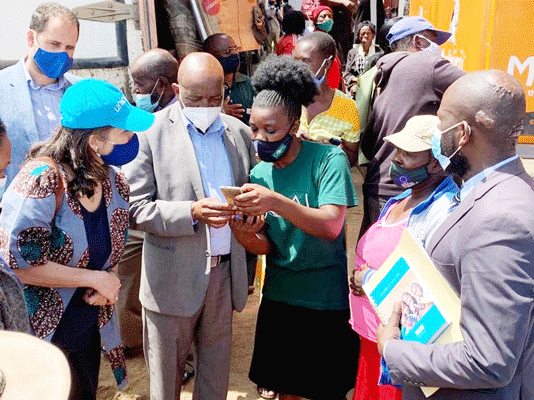
UNICEF Zimbabwe in collaboration with the Public Service, Labour and Social Welfare ministry and Goal Zimbabwe is rolling out the emergency social cash transfer programme (ESCT) to reduce food insecurity, improve dietary diversity, and maternal and child health outcomes of vulnerable households, whose situation has further deteriorated as a result of Covid-19.
by style correspondent
The programme is primarily focused on households headed by the elderly (65 years and above), those with pregnant women or with children under the age of two years, persons living with disability and child-headed households.
Households deemed to be well-off will be excluded despite the category they fall in. Importantly, the programme is flexible to ensure that highly vulnerable households which may not fall under the specified categories are also considered.
“Cash transfers are a very important way to protect the most vulnerable in Zimbabwe particularly during these emergency circumstances exacerbated by the Covid-19 pandemic,” said Laylee Moshiri, Unicef Zimbabwe representative.
“We hope that for the thousands of households who will receive the payments, the cash can go a long way to providing basic and sustained food supplies and increase the nutritional intake for these families.”
The beneficiaries of the programme will be supported through a combination of monthly cash transfers and complementary nutrition and child protection services for a period of 12 months.
“This is a social protection response to the emerging vulnerabilities in the urban context,” said Public Service, Labour and Social Welfare deputy minister Lovemore Matuke in his opening remarks at the launch event in Gutu recently.
- Chamisa under fire over US$120K donation
- Mavhunga puts DeMbare into Chibuku quarterfinals
- Pension funds bet on Cabora Bassa oilfields
- Councils defy govt fire tender directive
Keep Reading
“Assistance has been largely towards rural communities and recent studies, including the urban vulnerability assessment, are pointing towards an increase in both prevalence and incidence of urban poverty.
“We are grateful for the partnership between government and its development partners in the delivery of social protection to its vulnerable citizens.”
The programme initially aims to reach over 8 000 households (more than 34 000 individuals) and at present targets Gutu-Mupandawana in Masvingo province and Highfield in Harare province.
The programme is funded through the generous support of the government of Germany (KfW) and the government of Sweden (Sida).










